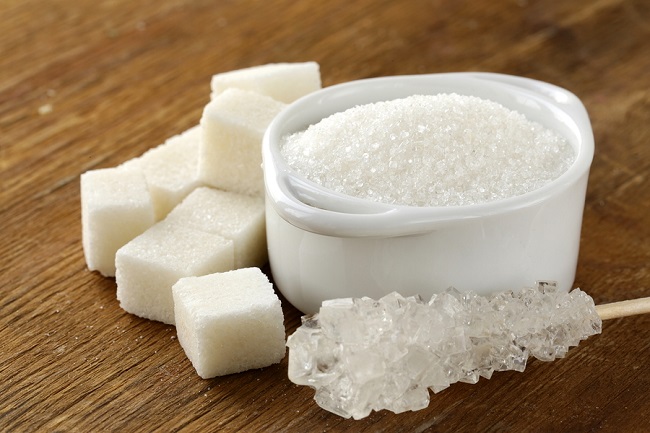- Make It Yourself Lavender Heart-Shaped Bath Bombs!
- 20 Things You Never Knew About “Down There”
- 12 Best Foods For Those Suffering From Arthritis Pain
- 12 Personal Hygiene Mistakes Almost Everyone Makes (Mom Never Told You About #4!)
- 15 Medicinal Plants And Herbs From The Cherokee People
- 12 Mind-Blowing Benefits Of Drinking Coconut Water During Pregnancy
- 12 Outstanding Winter Foods That Won’t Fatten You Up Like A Christmas Turkey
Thousands of Scientific Papers Confirm that Sugar Causes Disease

Photo credit: bigstock.com
Most people care about their health and their diet and try to eat right, but they still can’t tear themselves away from sugar. They put “just a little sugar” in their morning coffee, have “just one” soda at lunch, eat “just a few” cookies in the afternoon, and a “small” bowl of ice cream before bed. Most people don’t think that these small amounts of sugar will harm them, but they are only fooling themselves. These are just the obvious sources of sugar that they are consuming, but those in addition to all the hidden sugar in the other food that they are eating, they are consuming far more than ever imagined possible.
The really bad news here is that sugar is one of the worst things you can put in your body. We aren’t talking about sugar from natural sources, such as fruit, but refined sugar in all its forms. Recently, researchers from the University of California San Francisco considered the data regarding sugar from more than 8,000 research studies regarding sugar consumption. Not surprisingly, they found that sugar not only causes people to gain weight, but it causes disease as well.
Rather than a war on fat, Americans should be creating a war on sugar. Sugar is the main cause behind metabolic disease, which will lead to diabetes, blood clots, stroke, and heart disease. Sugar is also toxic to the liver, our main source of defense when it comes to removing toxins from the body. When you consume sugar, your liver must do twice the work to remove everyday toxins as well as the sugar you are consuming.
These same researchers also found that about ¾ of the processed and prepackaged foods contain some type of added sugar. This is even more of an incentive to eat a more natural diet. Sugar can be listed by as many as 61 names, but the most common names are:
- Dextrose
- Sucrose
- Evaporated can juice
- Fructose
- High fructose corn syrup
- Maltose
- Corn syrup
Continue to Page 2

Photo credit: bigstock.com
If you think that because you watch your weight you are safe and can eat sugar, think again. Sugar leads to chronic metabolic disease whether you are thin or overweight.
One of the problems is that people really are unaware of exactly how much sugar they are consuming. Back in the 1700’s, it’s estimated that an average person ate about 4 pounds of sugar each year. By the 1800’s, this increased to 18 pounds. In the 1900’s, sugar consumption increased to an incredible 90 pounds a year. Although the 2000’s have just gotten off the ground, it has already been determined that, as of 2009, about 50 percent of Americans eat about 8 ounces (that’s half a pound) of sugar every single day! That would add up to an almost unbelievable 180 pounds of sugar each year. Every year. Wow.
This is because sugar is in just about everything, not just the obvious things like cake, candy, and sodas, but also things like pretzels, ketchup, cheese spreads, and spaghetti sauce. Even infant formula has been found to contain sugar, getting our children hooked on this addictive substance from the day they are born.
If you don’t think sugar is a problem, consider this: In the late 1800s, there were less than 3 people diagnosed with diabetes out of every 100,000. In 2013, this has increased to 8,000 out of every 100,000. And all you need to do is take a walk around any shopping mall in America realize that we have a severe problem with obesity, despite the war on fat in our foods.
You can avoid most sugar by eating a diet that is mostly plant based with some raw, unsalted nuts, seeds, healthy fats such as coconut oil and avocados, and some added herbs and spices. Read more how to give up sugar in 9 steps.
SEE ALSO: Top 12 Fruits That Can Help You Manage Diabetes
The FDA is currently considered revising its labeling design, altering the way that companies can list serving size and highlighting the amounts of sugar, regardless of name, in all processed food items. This will help, but for the best health, avoid processed and prepackaged foods as much as possible, and then you won’t have to read labels and wonder what they are hiding in the first place.
References:
http://circ.ahajournals.org/content/106/4/523.full

































